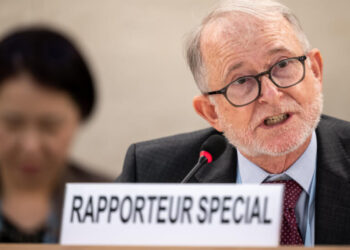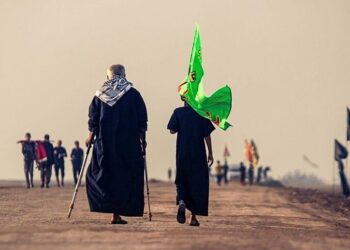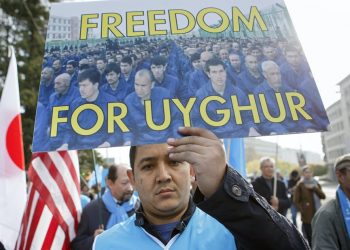Human Lives Human Rights: The People’s Mojahedin Khalq organization (MKO), which had chosen a secret life after the armed rebellion, had become heavily security-conscious, and its members could at any moment carry out a targeted or blind assassination in Tehran or one of the cities of the country, or or kill a group of people by bombing a place.
On 24 June 2019, Tasnim news agency published an interview with two security officials of the 1980s, and parts of this interview will be discussed below.
Tasnim: What does special military department mean?
Hamid: The MKO had two military or operational departments, which should not be confused with the military department with the responsibility of Abrishamchi, one was the special operations department and the other was the ordinary or non-special operations department. The non-special operations meant the blind operations in which Hezbollah and religious people were assassinated in the streets and markets. In these operations, some people were asked for identification cards, and if they belonged to military and revolutionary organizations, they killed them, and sometimes they assassinated them simply because of their religious appearance.
Nasser: The MKO also assassinated some shopkeepers who had pictures of Khomeini in their shops. A member of the MKO said during the interrogations, “It was my responsibility to hit the cleric of one of the mosques. I asked, ‘What if I don’t find the cleric?’, the terror group said, “Hit whoever you can!”
Hamid: The MKO called these blind operations “removing the fingertips of the regime”. In our neighborhood, there was a lemonade shop whose owners were a father and son who were religious and Hezbollahi’s, and the door and wall of their shop were full of pictures of Khomeini and martyrs. First, the father was assassinated blindly and martyred, and some time later, in 1984, the son of this family was martyred in the same shop.
Tasnim: When did the MKO withdraw?
Hamid: Almost after the strike in April, the terrorist organization withdrew. During the arrests, we came across some writings that said “A person should be referred to Azim.” After a while, we understood that they meant to be sent abroad. After we found out, we covered the exits of the west of the country with nets.
Nasser: Some may say it’s a pity that they escaped, but it was really a blessing, because the longer they stayed in Iran, the killing of people and assassinations in the alleys and streets would have increased. We were trying to catch them, but it was better for them to escape than to stay. However, as the MKO withdrew, the number of assassinations and street conflicts gradually decreased.
After leaving Iran, the MKO became the fifth pillar of the Baathist in Iraq, and the conflicts with the members of the organization went from the streets of the cities to the battle fronts. 1981 was a revolutionary year in Iran. In this year, there were conflicts both in the cities and on the fronts. However, after 1981, the MKO returned to the cities in 1984 and acted against the regime and the people in tandem with the Baathists under the title of resistance strategy. In coordination with the MKO, Iraq carried out missile and aerial bombardment of the cities, and then the MKO appeared in the bombing sites and tried to turn the crowd into protestors against the regime and chant, and if they failed to do so, they assassinated them. In 1983 and 1984, the organization continued to assassinate, but the number of assassinations in those years did not even reach 10. We had assassinations in 1985 and 1986 as well, but from 1987 to 1992, there were no more assassinations by the MKO.
Hamid: The forces of the MKO were really the security forces. One of our operation forces, who had a good work experience said that the organization’s forces were very security-oriented and strictly followed anti-security principles. In 1984 and 1985, the operational teams of the organization entered the country, they were told, “If you want to know that you are not being followed, get on a train and on the way, pull the brakes and get into the desert. If no one is following you, know that your status is clear, otherwise you are exposed”.
Nasser: One of the people who did this was named Behrouzi, who was strong. This person finally committed suicide.
Hamid: The members of the MKO were “carrying bombs” and at any moment they could explode or assassinate someone. Imagine that an ISIS terrorist with the intention of terrorizing and killing people is out in the city of Tehran, it is really dangerous. We tried our best to arrest these people and get access to other people of the MKO.


















